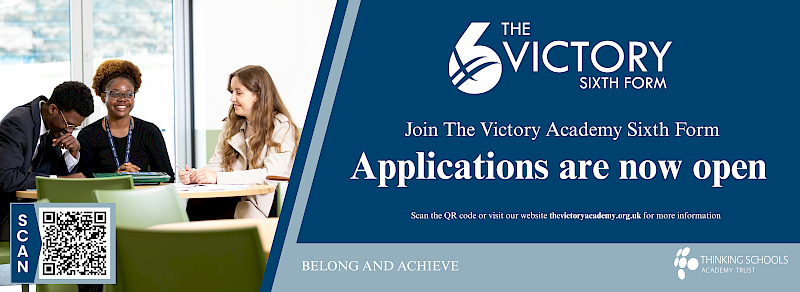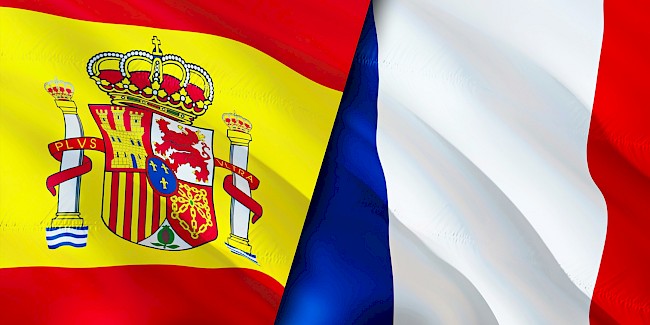
Applications for The Victory Academy Sixth Form are now open! To apply please click here.

Applications for The Victory Academy Sixth Form are now open! To apply please click here.

In year seven, students are taught the foundations of key grammar, through the recommended sequencing of NCLEP (National Centre for Excellence in Language Pedagogy). This equips all students with various opportunities to gain a solid grounding in grammar, for both recognition and active use and provides a firm foundation for further progression into year eight. Throughout year seven, we match the grammar sequencing with the most appropriate GCSE topic areas as follows…
We include key questions for students to answer within all topic areas which will later be required for extended sequences of speech and writing in key stage four. We teach from a variety of digital resources including NCELP for key content and Exampro and Zigzag for assessment purposes, using a range of key stage three and four materials to offer the students sufficient challenge. We provide the students with independent learning tasks, which allow them to become familiar with GCSE high frequency vocabulary via Quizlet, as well as grammar retrieval and exam style questions on topics covered. This model remains throughout the whole of our key stage three curriculum.
In year eight, our curriculum continues to follow the recommended grammar sequencing of NCELP. This ensures that grammar progression effectively builds upon the grammar structures taught in year seven and allows for frequent retrieval of reoccurring grammar as well as the more complex grammar needed to access the higher grades at GCSE. The GCSE topic areas covered in both languages are as follows…
In year nine, our curriculum is designed to complete the content teaching of the GCSE course and to prepare students for key stage four, by completing the final stage of grammar sequencing from NCELP. This involves retrieval of the previously taught GCSE topics in Yr 8, along with the following new topic areas…
Throughout the whole of key stage three all students have access to a Knowledge Bank, which we encourage them to use actively in lessons, as well as Stretch and Challenge Resources, to allow all students to reach their full potential.






In year ten, we reteach the GCSE topics covered in years 7, 8 and 9 through reoccurring grammar retrieval and exam practice. In order to achieve this, we follow the recommended topic sequencing of the Oak Academy. We ensure that all the key grammar covered throughout key stage three is revisited, along with any more complex grammar structures which students may have found more challenging throughout the earlier years. The sequencing of topics is as follows…
Spanish
French
The key reoccurring grammar we focus on is as follows…
In terms of independent learning, we encourage students to develop their memorisation skills for the learning of High Frequency vocabulary and topic based sentences, and require them to complete grammar practice activities as well as exam questions related to the topic areas being covered. We also provide our students with additional literacy resources such as Knowledge Banks,Vocabulary Activity Packs and Topic on a Page resources, as well as Stretch and Challenge resources to enable all students to achieve their very best. We also ask that students complete their e – learning tasks from Seneca. This model is applied throughout the whole of key stage four.
Our Yr 11 curriculum aims to reteach the remaining two topics previously covered in Year Nine in the following order for both Spanish and French…
We aim to complete the course content by Christmas, to allow our students ample exam practice time in all topic areas. We provide all students with exam packs, containing exam practice materials and a revision guide and we request that students attend revision classes to allow us to boost the amount of support we are able to offer our students, in the approach to their final examinations.
Language skills can be used in almost any career and particularly in businesses that trade internationally. People with language skills are employed by a wide variety of employers and sectors including…
The following websites contain useful further information about careers using languages…
KS3
KS4